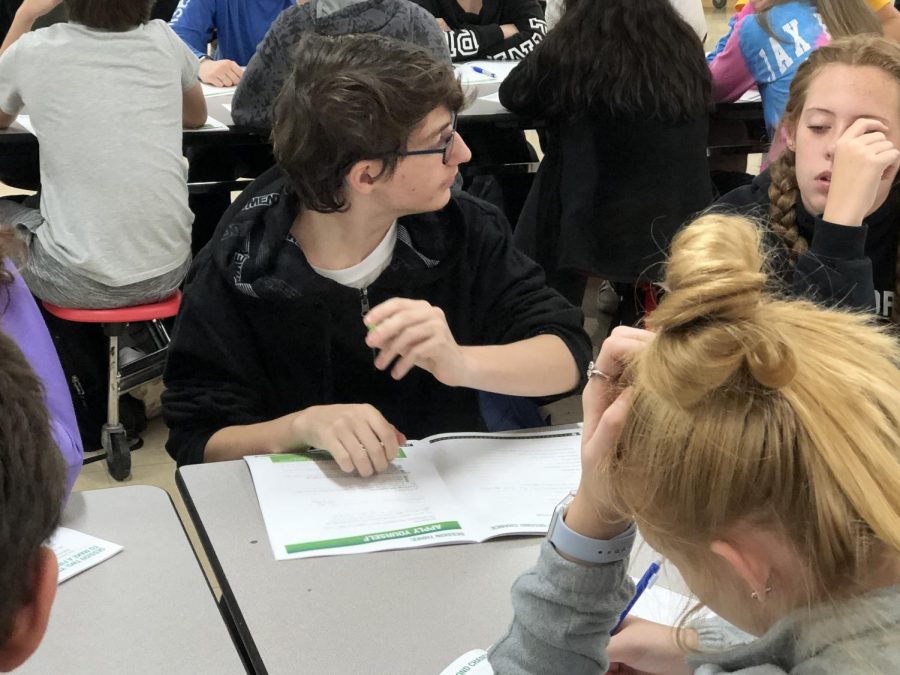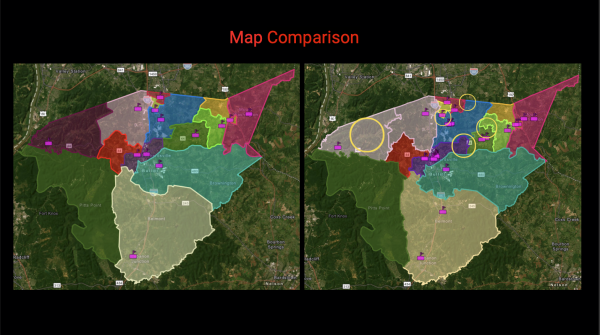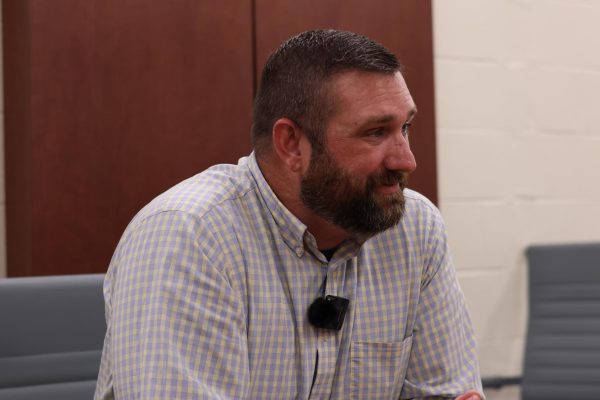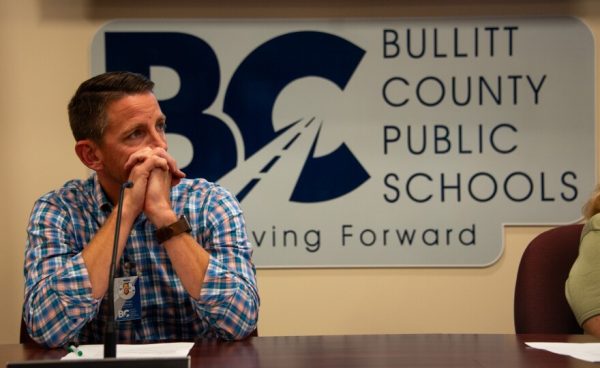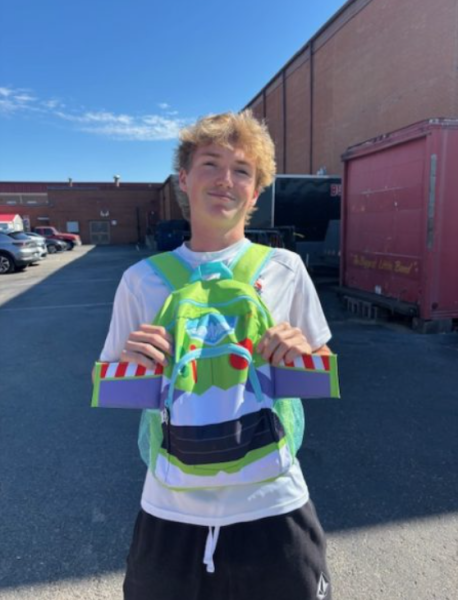Implementing Junior Achievement for all Students
Sophomore Robert Rogers watching Junior Achievement leader, Sergeant Schelee Burkett give instructions on what to do. Oct. 29 was the Junior Achievement day for all sophomores, and Rogers was working on the program, which he believes is needed. “I honestly don’t really mind it (Junior Achievement) at all, we need jobs,” said Rogers, “Most of us don’t know how to act, in job interviews, and all that.”
Get off your phone, so we can learn how to become social again in Junior Achievement.
Many people believe that technology is the reason that we are so antisocial, because we never have to face one on one conversations.
Junior Achievement can help with making this generation social again. Some students dislike the program, some students like the program, but most instructors love the program. Sergeant Schelee Burkett, the leader of Junior Achievement, attempts to help students for when they get out into the real world, after their school years.
Junior Achievement is a nationwide program. The program has been around for over 100 years, and goes all the way from fourth to twelfth grade. “Currently, I believe that it goes fourth through twelfth, but I think they are starting to work on kindergarten through twelfth grade,” said Burkett.
Burkett has been working with the program for the past three years, and joined through the National Guard. She is now the National Guard Recruiter for Bullitt County, and teaches Junior Achievement at Riverview High School, North Bullitt High School, and Bullitt East High School. “I volunteered through the National Guard to teach the juniors and seniors at Bullitt Central, Bullitt East, North Bullitt, and Riverview, to make sure that they were all on that same page and getting the same material,” said Burkett. Burkett now teaches freshmen, sophomores, juniors, and seniors.
Each grade level has a different topic that they focus on. we actually have something broken down for the freshmen, sophomores, juniors, and seniors, which was dictated by the Board of Education. So, district wide, every freshman will do the “Real Job, Real World” program, sophomores do the “Personal Success,” juniors do the “Be Entrepreneurial,” and then the seniors do “Career Success,” said Burkett.
Each grade level’s Junior Achievement time for their program usually occurs within the fall season, and takes up a full class period, although, teacher Sarah Akridge is okay with that. “Well, the goal is to give them the skills that we can’t necessarily teach in a lot of classrooms; The interview skills, the skills on how to give a good handshake, a lot of the things that aren’t content related, but just as important,” said Akridge.
Senior Aiden Robison likes the program, and is glad that he is able to graduate knowing more, because of Junior Achievement. “We all have to learn these tools one way or another, and if they can give us these tips to help us have a head start as soon as we get out of high school, then I think that’s a very positive thing,” said Robison, “I think that there are a lot of really good benefits to it, that teaches us a lot about searching for a job, and teaches us a lot of real life skills that we don’t necessarily learn in our court classes here at Bullitt East, so I think it’s helpful.”
Robison believes that Junior Achievement has helped him not only in school, but with his outside life as well. “It’s taught me a lot about how to treat adults, because obviously you show more respect to adults than you do like you’re friends, and so it’s taught me how to present myself to others, and have the best opportunity to get a good job in my future,” said Robison. Although, Sophomore Madison Ellcessor cannot seem to find that same help in the same program.
Ellcessor believes that the program of Junior Achievement can be helpful to many students, but it is just not helpful to her. “Kids now, don’t have like people skills, like they used to. They’re not very good at being conducted in an interview, like answering questions, actually knowing what they need to bring, and what they’re going to talk about,” said Ellcessor, “I don’t really like it myself, because a lot of it is based around preparing yourself for a job, which is fine, but I know that myself and others in the program itself, have already experienced a job interview process, and had their own first hand experience at a job.”
This generation cannot go a single day without using their phone, and that is why so many people believe that our generation will not know how to function when we get out into the real world. “A lot of them (students) see that they have been sucked into this technology world, and they find themselves behind a computer, behind a gaming system, behind a cell phone, they don’t actually have to have a one on one conversation with somebody, they can text it to them,” said Burkett.
Although, it’s not just teachers and leaders that are saying this about this generation, members of the generation itself is saying the same thing. “I think it’s very important, because we’re so caught up in being on our phones all the time, that a lot of students lack social skills, and so having someone come in and talk about how to have real world interactions, that means a lot to those kids who go home, and just play Call of Duty everyday. It gives them a chance to realize what they have to act like in the real world, and I think that’s a perfect way to get the message across,” said Robison.

